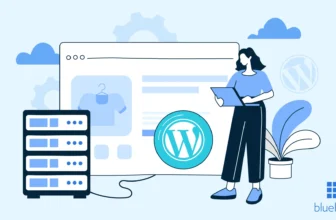
Introduction
Full stack development has revolutionized the way applications are built and maintained, enabling developers to handle both the frontend and backend components of a project. The advent of cloud computing has further transformed this domain, offering new opportunities and challenges. This article explores the synergy between full stack development and cloud computing, and discusses how developers can leverage these technologies to build robust and scalable applications.
Opportunities in Full Stack Development with Cloud Computing
- Scalability and Flexibility Cloud platforms like AWS, Azure, and Google Cloud provide unparalleled scalability. Full stack developers can easily scale their applications up or down based on demand, ensuring optimal performance without over-provisioning resources. This flexibility is particularly beneficial for applications with variable workloads, such as e-commerce sites during peak shopping seasons.
- Cost Efficiency Traditional on-premise infrastructure requires significant upfront investment and ongoing maintenance costs.In contrast, cloud computing utilizes a pay-as-you-go model. Full stack developers can deploy applications without the need for extensive hardware, reducing operational costs and allowing for better budget management.
- Enhanced Collaboration Cloud environments facilitate better collaboration among development teams. With tools like GitHub, GitLab, and Bitbucket integrated with cloud services, multiple developers can work on the same project simultaneously, improving productivity and speeding up the development cycle.
- Access to Cutting-Edge Technologies Cloud providers offer a plethora of services, including machine learning, artificial intelligence, big data analytics, and IoT, which full stack developers can integrate into their applications. This access to advanced technologies can lead to the creation of more innovative and feature-rich applications.
Challenges in Full Stack Development with Cloud Computing
- Security Concerns With data breaches and cyberattacks on the rise, security remains a significant concern for applications hosted in the cloud. Full stack developers must implement robust security measures, such as encryption, multi-factor authentication, and regular security audits, to protect sensitive data.
- Complexity of Integration Integrating various cloud services with existing systems can be complex and time-consuming. Developers need to be well-versed in the specific APIs and services offered by cloud providers to ensure seamless integration and avoid potential pitfalls.
- Vendor Lock-In Relying heavily on a single cloud provider can lead to vendor lock-in, making it difficult to migrate applications to another platform if needed. Full stack developers should design their applications to be as platform-agnostic as possible, utilizing containers and microservices architecture to maintain flexibility.
- Performance Issues Performance of cloud-based applications can be affected by network latency and bandwidth limitations. Developers need to optimize their code and make use of content delivery networks (CDNs) and caching mechanisms to minimize latency and improve user experience.
The Role of Full Stack Developers
Full stack developers play a crucial role in leveraging cloud technologies to build modern applications. Their expertise in both frontend and backend development, combined with an understanding of cloud services, enables them to create scalable, efficient, and secure applications.
For those looking to enter this exciting field or enhance their skills, there are numerous educational opportunities available. For instance, a Full stack developer course in Vadodara, Delhi, Mumbai, Navi Mumbai, Thane, Noida & all other cities in India can provide aspiring developers with the knowledge and practical experience needed to succeed in the industry. These courses cover a wide range of topics, including cloud integration, security best practices, and modern development frameworks, preparing students for the challenges and opportunities in full stack development.
Conclusion
The combination of full stack development and cloud computing offers a wealth of opportunities for developers to create innovative and scalable applications. However, it also presents challenges that require a deep understanding of both domains. By staying informed about the latest trends and continuously updating their skills, full stack developers can harness the full potential of cloud technologies and drive the future of software development. Whether you’re starting your journey in full stack development or looking to advance your career, educational courses across India can equip you with the tools and knowledge to thrive in this dynamic field.







